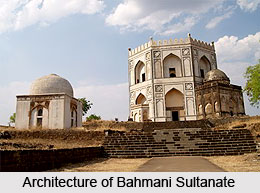 Bahmani Dynasty was a Muslim state of the Deccan in South India and one of the great medieval Indian kingdoms. Bahmanid Sultanate Dynasty was the first independent Islamic Kingdom in South India.
Bahmani Dynasty was a Muslim state of the Deccan in South India and one of the great medieval Indian kingdoms. Bahmanid Sultanate Dynasty was the first independent Islamic Kingdom in South India.
The Bahmani Sultanate Dynasty was founded on 3 August 1347 by governor Ala-ud-Din Hassan Bahman Shah, a Persian descent from Badakhshan. He revolted against the Sultan of Delhi, Muhammad bin Tughlaq, in the 13th Century.
Nazir uddin Ismail Shah who had revolted against the Delhi Sultanate stepped down on that day in favour of Zafar Khan who ascended the throne with the title of Alauddin Bahman Shah. His revolt was successful, and he established an independent state on the Deccan within the Delhi Sultanate`s southern provinces.
Bahmani Sultanate Dynasty made Ahsanabad as a capital, later known as Gulbarga between 1347 and 1425 when it was moved to Muhammadabad, now known as Bidar District. The Bahamani Dynasty was famous for the architectural fervour in the Deccan region. The Bahmani Sultans contested the control of the Deccan with the Hindu Vijayanagara Empire to the south. Bahmani Sultans reached the peak of its power during the rule of Mahmud Gawan. After 1518 Bahmani Sultanate Dynasty broke up into five states: Nizamshahi of Ahmednagar, Qutubshahi of Golconda (Hyderabad), Baridshahi of Bidar, Imadshahi of Varhad, Adilshahi of Bijapur. They are collectively known as the "Deccan Sultanates in India."
This article is a stub. You can enrich by adding more information to it. Send your Write Up to content@indianetzone.com






































